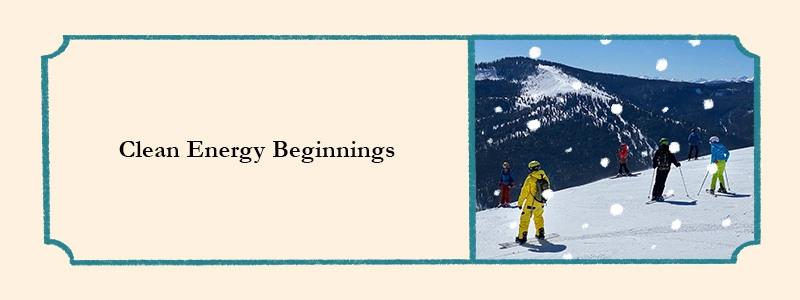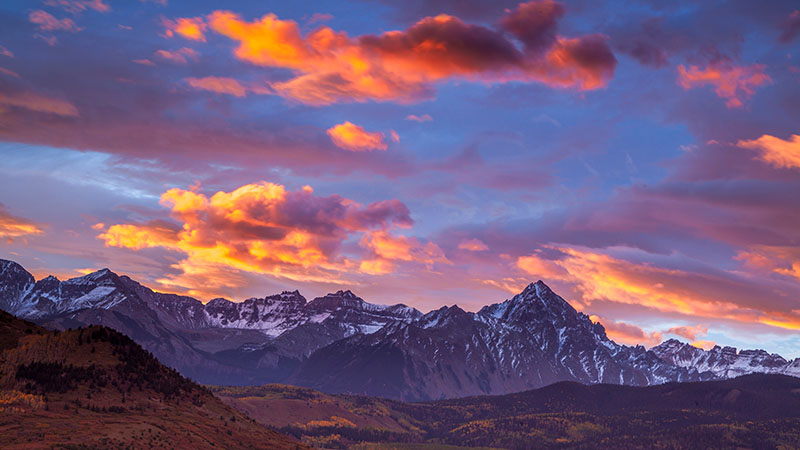December 21, 2022
As WRA’s Digital Engagement Manager, I’m lucky to have a front row seat to our organization’s important work. Recently, I took a deep dive into our 30-year history — and what I found was fascinating.
WRA was founded in 1989 as the Land and Water Fund of the Rockies, an environmental law and advocacy organization. Since then, our work, mission, and name have all evolved. But some things haven’t changed.
We’ve remained steadfast in our efforts to safeguard healthy rivers, promote clean air and water, protect land, and advance clean energy in our region. As a result, over the last three decades, we’ve had key policy and legislative victories across our issue areas.
As I discovered more about WRA’s story, I was struck by what our supporters have achieved. You are truly the main characters in WRA’s story. Your commitment has enabled our ability to step up and meet each new challenge in the West.
Below, you can read more about how WRA’s advocates and donors have helped shape the Interior West. And, find out how you’re starting to shape the future too.

Our landmark clean energy program started on a ski slope, some 10+ years before climate change became a household word.
WRA’s earliest work at utility commissions took place in Colorado, intervening in cases to change the way the biggest power companies in the state were regulated and encouraging the commission to consider environmental impacts in its decision making.
Over the next decade, WRA’s portfolio of work advocating for clean energy grew. While still a small team of less than 10 people, we began to advocate outside of Colorado and provide technical and legal help to groups all over the West.
We also started to work in more venues where important decisions get made, like state houses and city councils. In addition to continuing our work with utility commissions, by the early 2000s, WRA was working with lawmakers in states across the West to create policies advancing renewable resources.
Today, we are at the epicenter of our regional climate crisis and are continuing to transition the region to a clean energy future. Over the past few years, we’ve helped pass bold clean energy legislation in Colorado and laws that set the first-ever statewide goals for carbon emission reduction in New Mexico.

Alongside the growth of WRA’s groundbreaking clean energy work, the organization began to drive solutions to another critical problem facing our region: how we use limited water resources to continue to thrive in a drier future.
It’s become clear that 19th century laws and 20th century infrastructure are colliding with a 21st century climate and population to create a water crisis in our region. WRA has stepped up over its history to address this problem. We’ve developed and implemented policies that protect communities’ water future while leaving enough water for healthy rivers and streams.
For example, we’ve advocated for instream flow water rights to protect rivers, fish, and riparian environments in Colorado. WRA led the legal defense to uphold these rights on the San Miguel River in a key Colorado Supreme Court case in 2015, ensuring we continue to have this vital tool to leave a legacy of healthy rivers throughout the state.
Now, WRA is working to update laws and policies in Western states that are still encouraging us to overuse water. For example, in 2021, WRA helped shape legislation updating Arizona’s “Use it or lose it” water law — a policy left over from the 19th century that disincentivized efficient water use. Revising this legislation helps keep more water in local rivers and streams, benefiting people, watersheds, and wildlife.

Early on, WRA realized that protecting land and habitat was also a crucial part of ensuring communities across the West can thrive; the region’s idyllic landscapes and iconic wildlife are part of what many love about the West. They also support a growing outdoor recreation economy.
That’s why, for the last 20 years, we have proactively advocated for safeguards in national forests and other public lands while fending off oil and gas development projects that harm wildlife.
In 2011, we protected more than 140,000 acres, including 90,000 acres of roadless areas, in the Uinta National Forest from oil and gas development. This area provides drinking water for Wasatch Front cities and is an important habitat for many sensitive species, including the Bonneville and Colorado cutthroat trout.
Today, we’re continuing to protect and connect wildlife and landscapes while working to increase access to the outdoors for everyone. We’re committed to safeguarding 30% of Western land by 2030, which would protect biodiversity and increase opportunities for outdoor recreation across our states.

WRA’s story also includes a chapter on our efforts to promote clean air. For decades, we’ve worked to hold decision makers accountable for improving poor air quality and to advance innovative solutions to reduce air pollution.
Among the many victories our supporters have made possible, shuttering the last coal-fired power plant on the Wasatch Front stands out.
The Wasatch Front is one of three populated areas that regularly violates national air quality standards in Utah. As a direct result of WRA’s action, the Utah Air Quality Board ordered Kennecott Utah Copper to retire its last coal-fired unit in 2019, spurring an announcement from the utility to forego coal in favor of renewable energy.
The switch avoids 6,000 tons of significantly harmful ozone and particulate matter from being released into the environment annually and reduces carbon emissions by more than 1 million tons each year. This shutdown is literally saving lives.
In 2022, we’re still fighting for better air quality to safeguard public health and the environment. We’re working to protect land from harmful oil and gas development — a direct source of particulate matter pollution and the pollutants that make up deadly ground-level ozone. And we’re working state-by-state to get more electric cars and trucks on the road to cut down on dangerous tailpipe pollution

Learning about WRA’s history, it became clear that our supporters and advocates have been with us every step of the way, enabling WRA lawyers, economists, engineers and policy experts to tackle the West’s biggest environmental challenges. None of the work detailed above would have been possible without you and your loyalty to our mission.
In 2023 and the years to come, we’ll need you more than ever. Looking forward to the next chapter of WRA’s story, we’re committed to continuing to shape a better future for the Interior West. And we’re tackling the biggest challenge yet – the climate crisis and its impacts in our region.
We’re already doubling-down in our efforts to fight climate change. But the truth is, there is still much more to be done. We have ambitious goals to ensure Western communities, landscapes, and waters are protected as our region faces a warmer and drier future. By 2050, we aim to:
- Achieve 100% clean energy;
- Connect and protect 50% of all Western land; and
- Prevent a 50% reduction in Colorado River flows.
To achieve these goals, we need everyone with us. If you’ve been a part of our history so far, thank you. If you haven’t, now is your opportunity to join us in creating a future where the West remains a vibrant place with a livable climate, thriving wildlife, and beautiful landscapes for all to enjoy.


